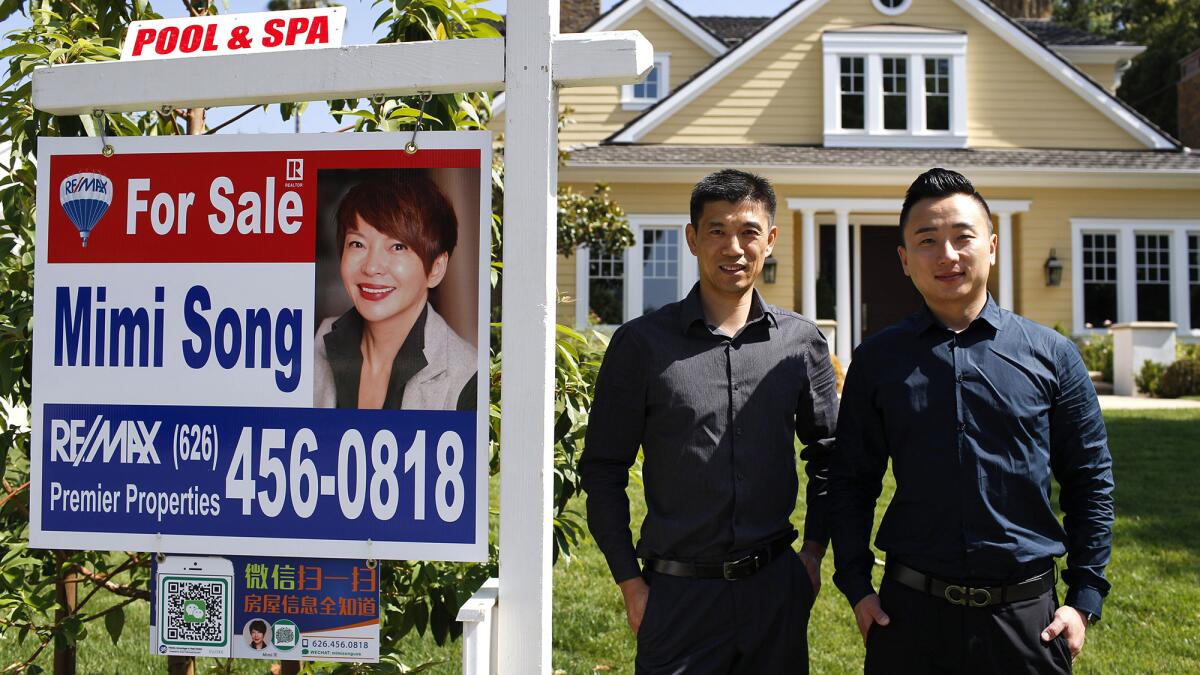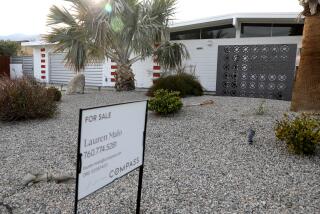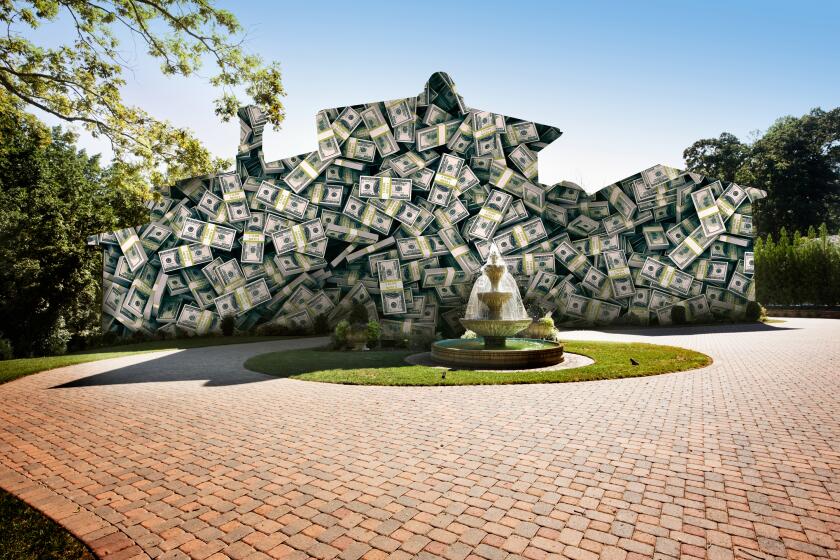Online services put Mandarin at fingertips of China’s prospective real estate buyers

For months, Shu Li acted as the de facto go-between for her friends in China interested in purchasing Southern California real estate.
“I used to have to call the agent, get the information, forward that information to my friends in Mandarin,” the educational trainer said. “Now I don’t have to do that much to help them out.”
Instead, Li has started referring her Chinese friends to the House Club, an online platform that integrates with WeChat, China’s most popular messaging app. Through the House Club, Chinese buyers can easily find information such as square footage, layout and neighborhood information — all in Mandarin.
It’s one of several services that have cropped up to aid Chinese buyers of U.S. real estate, often by providing English-to-Mandarin translations of real estate listings and videos.
Chinese real estate website Juwai.com says a tiny percentage of people in China can read English, yet they are the biggest foreign buyers of American homes. According to a study by the Asia Society and the Rosen Group, in the last five years they’ve purchased homes valued at $93 billion, including $28.6 billion last year.
The House Club lets potential buyers message agents directly and provides agents with free China access numbers so that overseas buyers can call them with one click of a button.
The start-up was founded in 2014. With a flood of Chinese buyers looking for properties in the U.S., the partners saw the potential for marketing properties — and assisting with language hurdles — through WeChat, which as of April had more than 700 million active users.
After real estate agents sign up for the House Club, they can upload photos and add descriptions of the property. Mandarin-speaking real estate agents can translate their own property listings but often rely on the House Club’s two in-house translators.
“The quality of the translations are pretty good and accurate,” said Re/Max Premier Properties agent Mimi Yan Song, who specializes in Arcadia and San Marino properties.
Real estate agent Pauline Ghim prefers to write her own translations when she has time.
“When I translate, it’s not just a direct translation; it’s more fitting to the Chinese clientele,” she said. “The way you express something is very different.”
Co-founder and Chief Executive Phil Deng said the House Club is constantly improving its translation services. It recently hired someone who used to write real estate listings in local Chinese magazines.
Once they upload property information, agents have a Mandarin listing that they’re able to broadcast to WeChat’s millions of users. The House Club also generates a QR code, which appears on the home’s for-sale signs and fliers and takes prospective buyers directly to the property’s listing.
Deng said that though still a fledgling company, the House Club has doubled the number of agents on its platform in the last year and now has several hundred. Agents pay $936 per year to use the service, which gets them a mobile website compatible with WeChat, unlimited listings and a hundred translations. Buyers use the House Club for free.
Solid Mandarin real estate translations have become key to attracting Chinese buyers.
Juwai.com offers professional translations of listings packaged with a higher search ranking for $20 per listing per year. The property search engine also includes school rankings and proximity to top-tier universities and hospitals, which English listings sometimes leave out, said Matthew Moore, president of Juwai.com’s Americas region.
“We do our best to inject some of the motivations that we think are most critical to selling a property, when translating a listing,” he said. The site’s internal metrics show that translated property listings in Southern California are viewed 87 times more than English listings on Juwai.com. They also generate 40 times more inquiries.
Videos are being narrated in Mandarin, too.
Onvedeo is a tool that automatically generates videos using existing MLS data and photos, location information from Google Maps and local video scenes.
Founder Boubou Guiro said Onvedeo’s Mandarin videos are popular with agents who don’t speak the language but who have Chinese investors interested in their listings. The company also provides narration options in other languages, including Spanish and Korean.
“Good video requires a lot of time, money and expertise — a combination agents don’t always have,” Guiro said. “The solution was to automate the process with our technology. It’s a win-win.”
More to Read
Sign up for Essential California
The most important California stories and recommendations in your inbox every morning.
You may occasionally receive promotional content from the Los Angeles Times.






